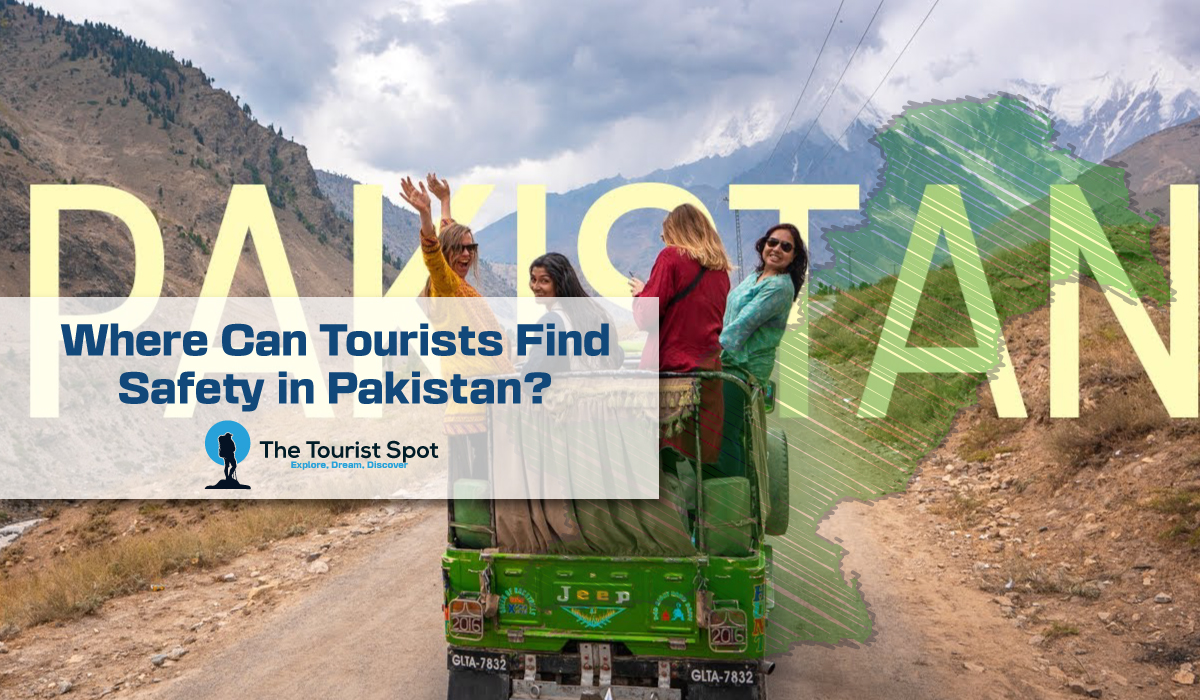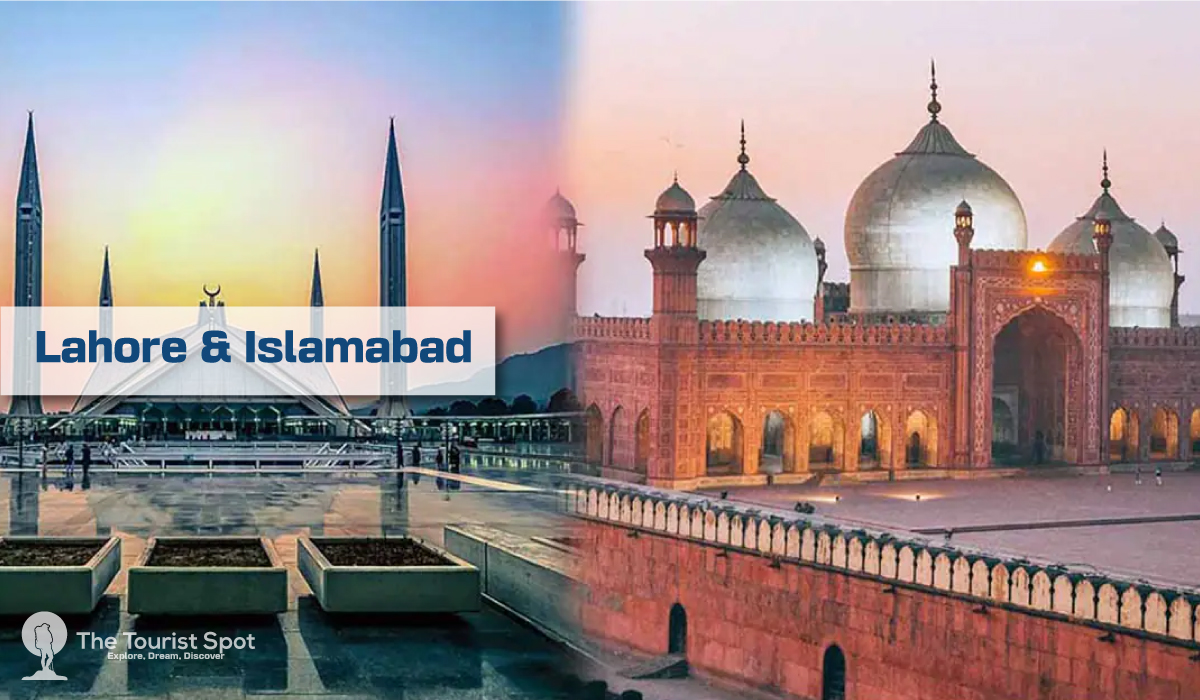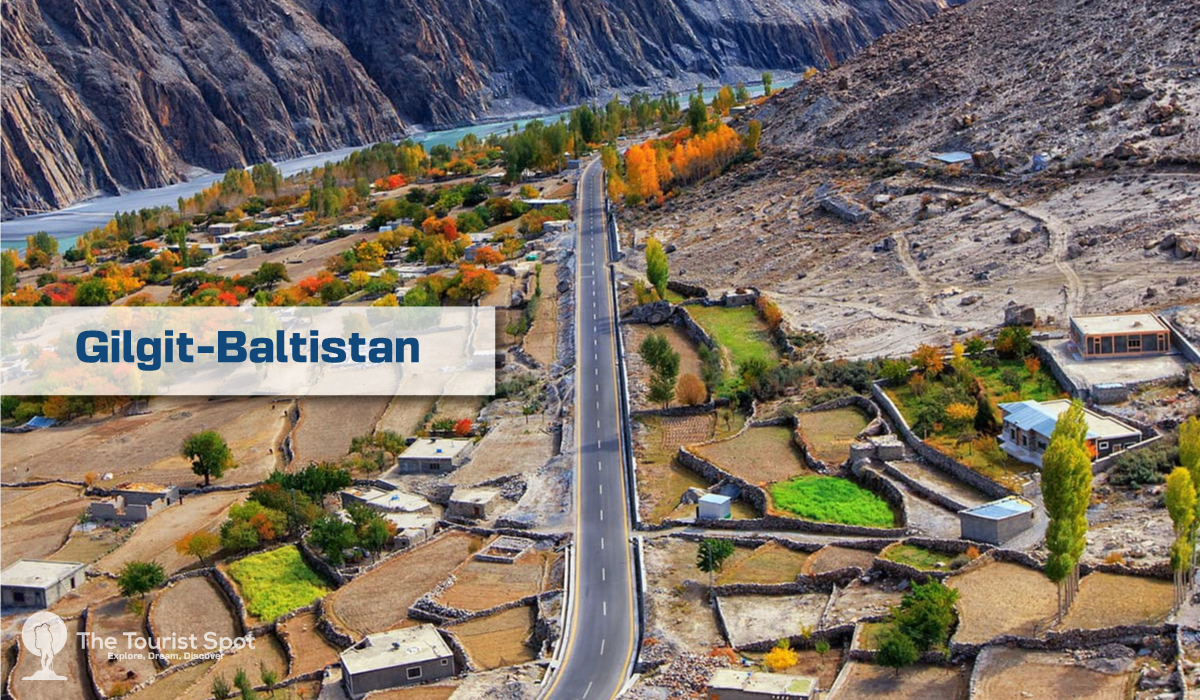Where Can Tourists Find Safety in Pakistan?
by tourist

Discover how tourists find safety and adventure in Pakistan. Explore captivating destinations, cultural wonders, and travel tips for an enriching experience
Pakistan is a cool place to travel, with great food and history. However, you’ll need to be extra careful if you decide to go here.
Harassment of foreign females is not uncommon in crowded places. You might also experience some catcalling and mild forms of groping.
Consider joining Facebook groups such as Backpacking Pakistan, See You in Pakistan and Female Pakistan Travelers (women only). They are treasure troves of information and connections.
Table of Contents
ToggleLahore & Islamabad
The cities of Lahore and Islamabad are some of the safest places in Pakistan for travelers, with few issues outside of these two major hubs. The majority of Pakistanis are friendly, and the country has a strong history of hospitality. However, the security situation in Pakistan is still evolving, and locals are not yet accustomed to dealing with tourists. Outside of the big cities, it’s common for foreigners to experience harassment and hassle, particularly female travelers. Harassment can take many forms, including groping, stalking, and even physical assault. Food poisoning is also a common problem, due to poor hygiene standards and excessive use of oils and spices in food.
The rest of Pakistan’s major cities are safe, and many are becoming more and more tourist-friendly. However, many of Pakistan’s more remote regions have more serious security concerns. The Taliban and other terrorist groups remain active in some parts of the country, and natural disasters such as earthquakes and monsoons are also common.
Hunza, for example, has been a long-time favorite on the Hippie Trail and is one of the safest destinations in Pakistan. It’s also the most educated region of the country, and its residents are known for their tolerance. There are numerous jaw-dropping trekking routes in the area, and it’s possible to hike up to the basecamp of Rakaposhi Mountain (7,788 m) with little difficulty.
Getting around Pakistan is not difficult, and the cities of Lahore and Islamabad have an excellent bus and train network. The trains are often slow, but they’re cheap and convenient, and the buses are modern and clean. If you’re planning to travel beyond the cities, it’s recommended to hire a private driver or book an organized tour with a local company.
If you’re traveling to Pakistan, it’s essential to get proper travel insurance before you go. Look for a policy that offers month-to-month payments, requires no itineraries, and has a 24/7 emergency helpline in case you need assistance. We recommend using Safety Wing, a travel insurer designed specifically for backpackers. Click the button below to learn more about their trip insurance policies.

Punjab
Pakistan is one of the most diverse countries in the world and its people are very welcoming. However, it’s important to remember that it is still a Muslim country and you will be expected to dress conservatively, respect other religions and refrain from speaking negatively about the Muslim faith in public. It’s also a good idea to learn some Urdu before arriving as it is spoken everywhere. This will earn you a lot of respect and make it easier to interact with the locals.
While Pakistan is generally safe for women traveling solo, the situation can deteriorate rapidly with the threat of terrorist attacks, civil unrest and sectarian violence. Exercise a high degree of caution and avoid non-essential travel to Karachi and other parts of the country due to these risks.
During the monsoon season from June to September, flooding can occur along rivers and in populated areas, which can cause disruption to overland transport and limit access to essential services. Heavy rain can also lead to landslides and disrupt roads in mountainous regions, causing serious injuries and fatalities.
The crime rate is low in most areas, but there is a risk of kidnapping and attacks against foreigners. Avoid large crowds and demonstrate caution in the cities, especially at night.
A visa is required for entry into the country, but it can be obtained on arrival at most major airports. There are several other requirements to keep in mind, including a valid passport and return ticket, health insurance and proof of funds for the duration of your trip.
It’s also a good idea to carry cash, but credit cards are accepted in some larger establishments. You’ll need to have a valid driver’s license if you plan to rent a car or take a taxi. Uber and Careem are cheap and reliable options for transportation around the city, but it’s important to sit behind the driver and not give out your actual phone number if you want to maximize safety.
It’s also a good idea to bring mosquito repellent, as there are plenty of biting insects in the summer. And finally, it’s important to be aware of Pakistan’s drug laws, as possession or consumption of illegal drugs can result in serious fines and imprisonment.
Gilgit-Baltistan
The Gilgit-Baltistan region of Pakistan is a renowned trekking and mountaineering destination. It is home to some of the world’s highest mountains, including K2, which is the second-highest peak in the world. It is also home to a variety of flora, fauna, glaciers, and lakes, as well as a rich culture and welcoming people.
Unfortunately, there are a few safety issues to be aware of when visiting this region. The most common is harassment, groping, and assaults of both men and women. This is most commonly experienced in large crowds, so make sure you stay away from them if possible. Other dangers include road accidents, altitude sickness, and food poisoning. The food in this region is notorious for its lack of hygiene and the use of heavy spices and oils, so it’s important to be mindful of what you’re eating.
Some treks in this area require a special permit, and it’s best to organize these with a local agency before arriving. You may also need to register with the local authorities at certain checkpoints, especially in the mountains. This can take a long time, so it’s a good idea to have a whole shitload of passport copies with you.
It’s also worth noting that 2SLGBTQI+ persons in this region have been subjected to violence, including honour killings. Make sure you speak up if you encounter any incidents of this kind. Additionally, it’s important to remember that blasphemy is illegal in this part of the country, so avoid making controversial statements or publicly displaying your religion.
The rainy season in this region runs from June to September, and can cause floods or landslides, which could affect overland travel and access to essential services. Additionally, avalanches are a hazard in the mountains, and have been known to kill people. It’s also a good idea to carry a first aid kit with you, as medical facilities in this part of the country are limited. In addition, a high level of physical fitness is required for some treks, so be sure to prepare accordingly.

Kashmir
As a traveler, it’s essential to make sure you’re covered by the right insurance. Especially since overseas medical care and cancelled flights are extremely expensive, it’s best to be prepared for any unexpected events. You can get comprehensive travel insurance through most travel agencies, but if you’re travelling independently you’ll probably need to buy it separately through a trusted supplier.
It’s important to remember that the threat of terrorism, civil unrest and sectarian violence is ever-present in Pakistan. There is also the risk of kidnapping, especially in remote regions. As a result, you should always exercise a high degree of caution and avoid non-essential travel to the country’s interior.
While it’s possible to travel as a solo female, you should be aware of the potential for sexual harassment, gender-based violence and honour killings. In addition, human rights organizations have reported that 2SLGBTQ+ individuals face discrimination and violence in the country.
In general, it’s a good idea to dress modestly and respect local customs. Foreigners are also required to carry a valid visa in order to enter the country. The government advises you to enroll in the Smart Traveler Enrollment Program (STEP) to receive security alerts and make it easier for local authorities to locate you in the event of an emergency.
As a foreigner, you’ll need to be extremely mindful of your surroundings, particularly when visiting public markets, religious institutions and government offices. You’ll also be expected to refrain from religious proselytizing and blasphemy, which can lead to arrest and hefty fines or even imprisonment.
The most significant challenge for visitors to the country is that it’s a very patriarchal society, and women are often treated less favourably than men. That’s not to say that the majority of people won’t treat you well, but if you aren’t used to this kind of behaviour it can be difficult to adapt. It’s also worth noting that the weather can be incredibly hot, so it’s important to bring plenty of water and sunscreen. Also, keep in mind that many hotels and similar establishments only allow married couples to stay together.
Discover how tourists find safety and adventure in Pakistan. Explore captivating destinations, cultural wonders, and travel tips for an enriching experience Pakistan is a cool place to travel, with great food and history. However, you’ll need to be extra careful if you decide to go here. Harassment of foreign females is not uncommon in crowded…
